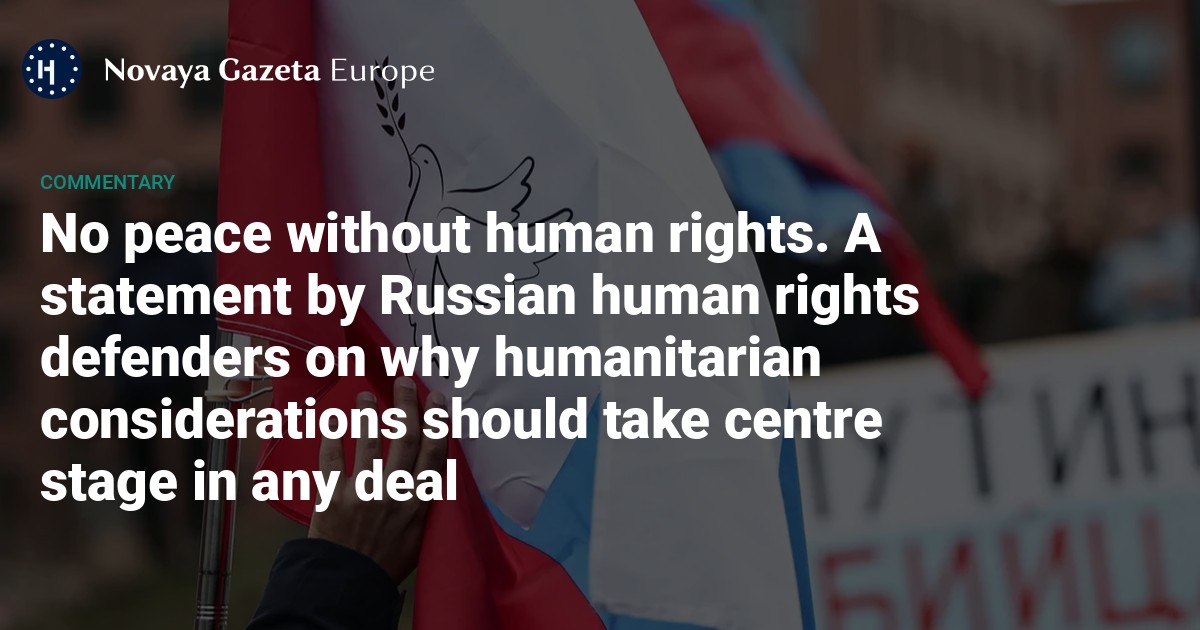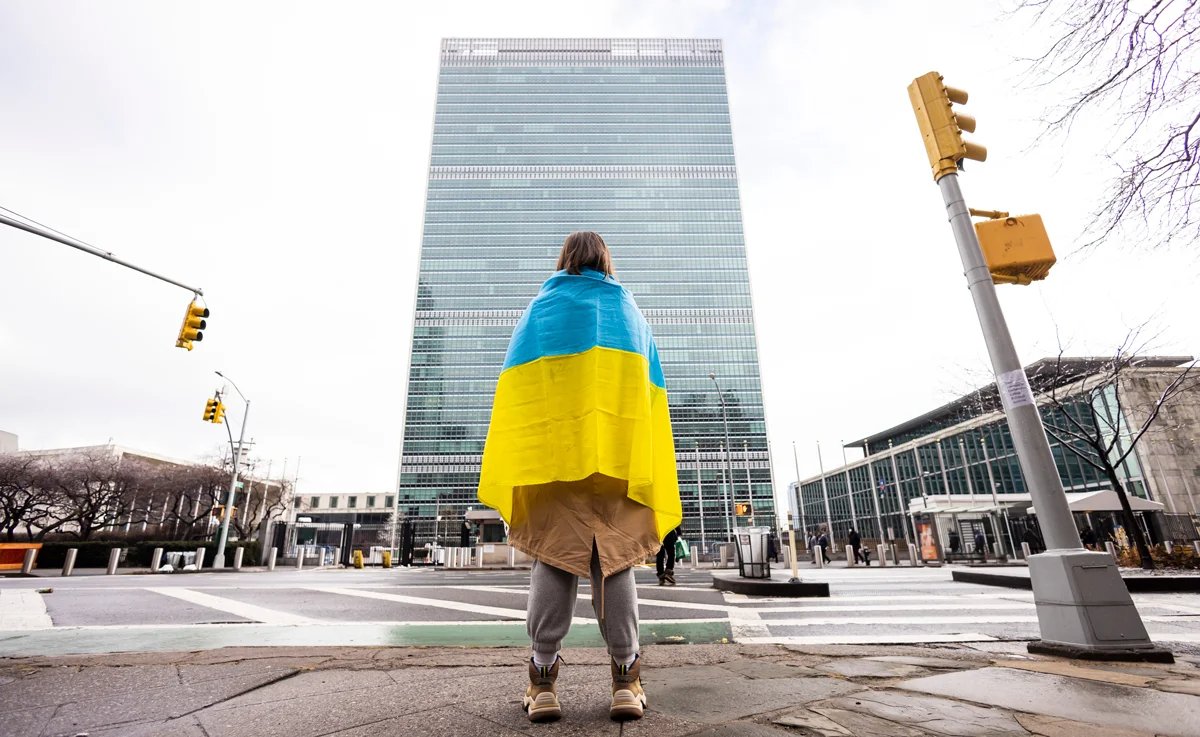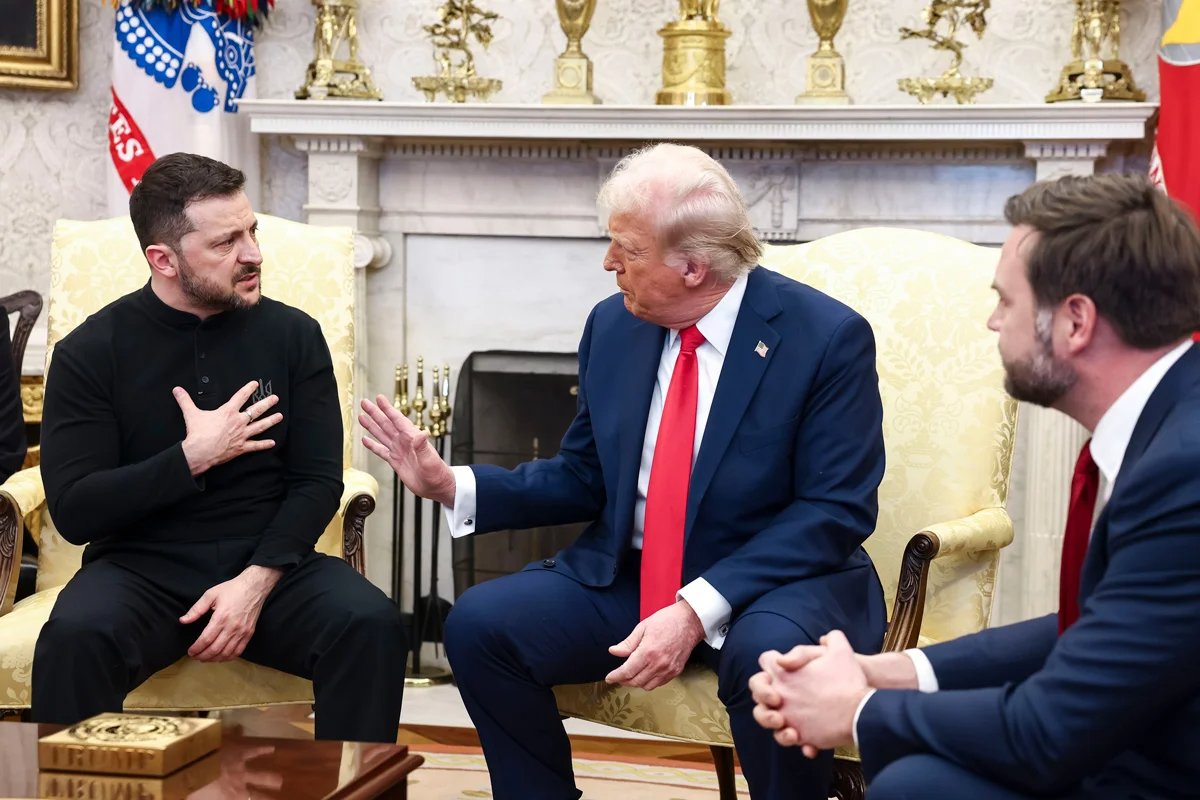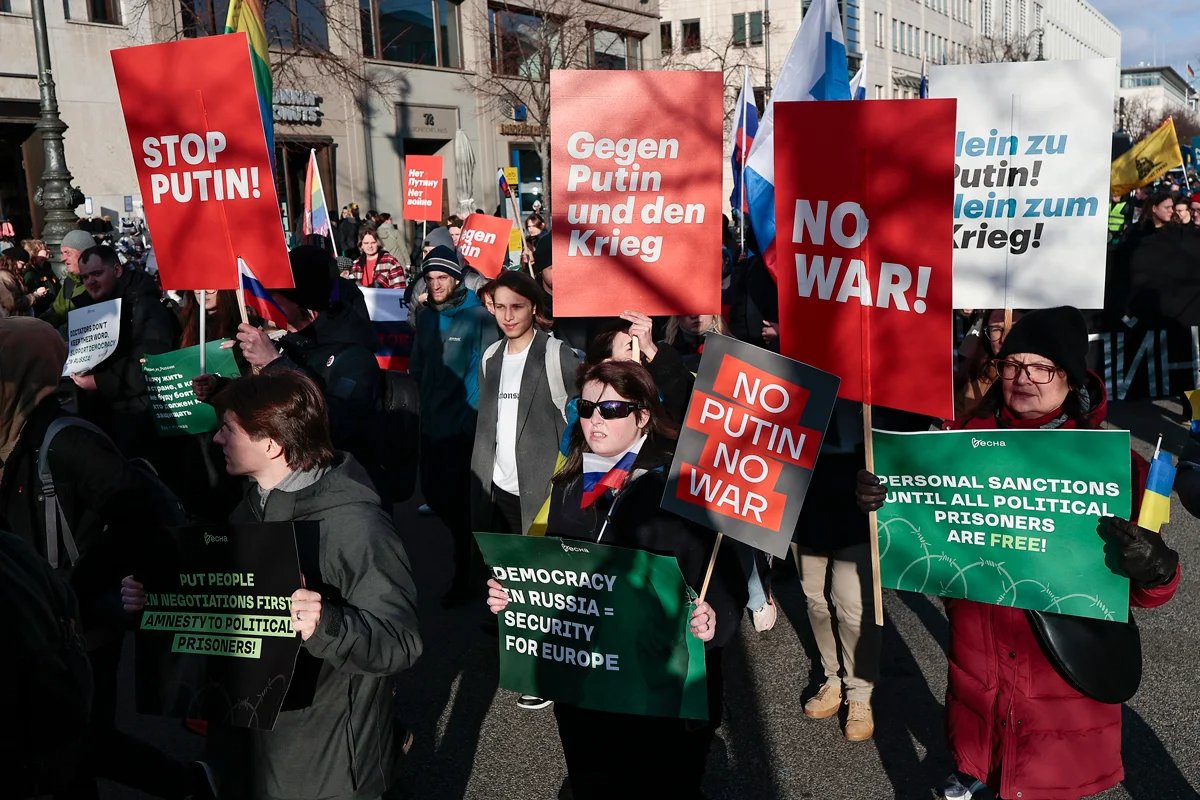



In the past weeks and months, Russian and Ukrainian human rights activists have been focusing on negotiations to end the war in Ukraine.
Back in January, human rights activists and the People First campaign raised several issues to parties involved in ongoing negotiations in the hopes that the negotiations would prioritise those affected by the conflict, particularly prisoners of war, detained Ukrainian citizens, Ukrainian children which have been taken to Russia, and Russian political prisoners.
The invasion of Ukraine was only possible thanks to a system of political repression Russia has inflicted on its own people for decades.
In February, on the third anniversary of Russia’s full-scale invasion of Ukraine, a group of UN special rapporteurs and experts called for parties involved in negotiations to put legal and humanitarian issues at the forefront of discussions. They stressed that the Russian government must be held accountable for its aggression and war crimes in Ukraine committed, and its repressive policies towards its own citizens.
The invasion of Ukraine was only possible thanks to a system of political repression Russia has inflicted on its own people for decades. According to experts, over 3,000 individuals have been persecuted by Russian authorities for political reasons.
Despite recent efforts by human rights activists to advocate for person-centred negotiations, it seems more and more doubtful that the focus will be on human rights when the time comes.
Human rights, which form the basis of international law and are enshrined in several binding international agreements, are perhaps humanity’s greatest twentieth-century achievement.
The United Nations was created and the Universal Declaration of Human Rights was adopted after the horrors of World War II. In 1975, the Helsinki Final Act was signed, establishing a universal respect for human rights and democratic principles, whereby a respect for human rights became a prerequisite for maintaining international peace and cooperation between states. Important norms and values were established in global politics, anchored within the framework of the UN and the OSCE.
These international mechanisms and documents are designed to prevent World War III from breaking out and guarantee the observance of human rights.

A woman with a Ukrainian flag stands in front of the UN headquarters, New York, 25 February 2022. Photo: Justin Lane / EPA
However, this system is not without its faults. Wars, crises, and dictatorships continue to threaten global security. At times, the world has teetered on the brink of World War III, never more so than during the Cold War.
But after decades of peace, humanity entered a period of economic growth, technological development, and global cooperation.
After the collapse of the Soviet Union, the newly independent states had the opportunity to independently build their own democratic futures and they opened their borders and markets to find their place in the global economy.
The US has been an important figure in the development of human rights, becoming the founder of advanced legal practices and institutions now operating worldwide. While the US has not always played a positive role, their contribution to the promotion of democratic values and norms cannot be understated. Until recently, the country’s commitment to human rights, the rule of law, and democracy seemed unshakeable.
Russia’s aggression against Ukraine has challenged the established system of international relations, which has now proven to be woefully fragile. Most countries see Putin’s decision to unleash outright war on Ukraine as unacceptable. While many democratic countries have continued to provide Ukraine with assistance, this has at times proven insufficient in the face of Russian violence.
Since January, the rejection by the US of legal norms in place since the two world wars has unleashed a new crisis in international politics.
US tactics to repeal basic human rights seem eerily familiar for Russian activists, who have been fighting similar state tactics for the past 25 years.
The new American administration’s policy is increasingly similar to Putin’s own tactics. Both favour the “right of the strong”, whereby great powers can decide the fate of others and dictate conditions. The US has shown itself to be less interested in international law, making it increasingly easy for norms to be overlooked.
US tactics to repeal basic human rights seem eerily familiar for Russian activists, who have been fighting similar state tactics for the past 25 years. Russians knew a world without regard for international human rights or legal norms long before 2025, or the invasion of Ukraine in 2022.
For 25 years, Putin’s government has created a country which prioritises the interests of the state and denies basic human rights.
What is happening in the US is recognisable to many Russians.
By wanting to end the war in Ukraine and find a quick solution, the US president is effectively equating the aggressor with the victim of aggression.
Negotiations thus far suggest Trump is more likely to ensure Russian interests that are detrimental both to the safety of the Ukrainian people, who have been subjected to aggression and occupation, and to justice and a sustainable peace.

Volodymyr Zelensky, Donald Trump and J.D. Vance during a meeting at the White House, Washington, 28 February 2025. Photo: Jim Lo Scalzo / EPA
The scientist and human rights activist Andrey Sakharov wrote 50 years ago: “Peace, progress, human rights — these three goals are inextricably linked. You cannot achieve one by neglecting the others.”
Today we talk about peace, but at the same time the basic principles of human rights and international law — the prevention of military aggression and human rights violations — are being catastrophically devalued. Such a rejection of the principles of law do not lead to peace and progress, but to an inevitable series of new catastrophes.
An unfair peace — a “deal” that contradicts the norms of international law — sets a dangerous precedent.
Russia’s full-scale invasion of Ukraine was the result of years of human rights violations within Russia and the lack of a response from the international community to these violations.
An unfair peace — a “deal” that contradicts the norms of international law — sets a dangerous precedent. It normalises the war against Ukraine, thereby giving Russia the green light to repeat its aggression and to enact even harsher repressive policies inside Russia.
Such a “deal” is a signal to the whole world, a move towards dangerous instability, reminiscent of the brink of the outbreak of the world wars.
Departing from the principles of human rights and international law in peacekeeping practices encourages impunity and will inevitably lead to new wars of aggression. Democracy in many countries will also be at risk, as the new rules of the game will open up opportunities for autocrats and dictators to violate human rights in their countries without regard for international institutions and their international obligations.

Russian anti-war march in Berlin, 1 March 2025. Photo: Vasily Krestyaninov
We call on the leaders of all democratic countries, all politicians for whom human rights are not merely empty words, and civil society to take a stand and bring human rights back into international politics.
This is the only way to create reliable conditions for long-term peace in Europe and prevent the emergence of new-large scale military conflicts globally. Otherwise, the world will find itself in a situation where the fate of countries and the people living in them will be decided through wars unleashed by imperialist predators.
We call on all parties taking part in peace negotiations in Ukraine to prioritise the human aspect: the fate of prisoners of war and the protection needed for civilians, including in Russian-occupied areas of Ukraine.
We insist that negotiations be based on the fundamental norms of international legal agreements, including the UN Charter and the Helsinki Final Act, as they define aggression, protect the principle of territorial integrity and sovereignty, and link military and political security with human rights. Without this, it will be impossible to achieve a just and sustainable peace.
The appeal was drafted and signed by members of the the Council of Russian Human Rights Defenders: Galina Arapova, Sergey Davidis, Yury Dzhibladze, Leonid Drabkin, Sergey Krivenko, Sergey Lukashevsky, Karinna Moskalenko, Oleg Orlov, Lev Ponomarev, Alexander Cherkasov, and Yelena Shakhova.
The names of the other Council members who signed the appeal are not given for security reasons.
The Russian government has banned independent media. We were forced to leave our country in order to keep doing our job, telling our readers about what is going on Russia, Ukraine and Europe.
We will continue fighting against warfare and dictatorship. We believe that freedom of speech is the most efficient antidote against tyranny. Support us financially to help us fight for peace and freedom.
By clicking the Support button, you agree to the processing of your personal data.
To cancel a regular donation, please write to [email protected]
VPNovaya
Help Russians and Belarusians Access the Truth
